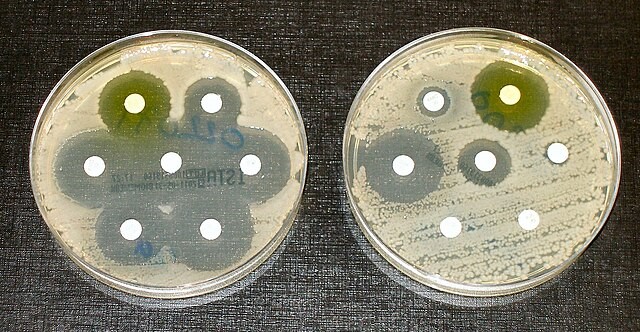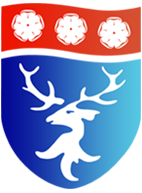Medical Science - Level 3 Extended Certificate
The science department are very excited to offer this as a new course from 2025. It should appeal to those who have a keen interest in the application of science, particularly in the medical area. It offers a unique opportunity to study a subject that is relevant to their own lives and experiences. It suits learners who want to find out more about science through personal investigations, as the course enables lots of opportunity to carry out practical work and research. You should have an interest in developing an understanding of science and how to solve scientific problems via studying a course that is active, enjoyable and current. It covers the same timetabling as one A level, so it is expected to be studied alongside 2 A levels or other AAQ subjects. You will achieve a Pass, Merit, Distinction or Distinction*. All external exams are available to re-sit if required to achieve an overall higher grade.
Course Content (Edexcel) to be covered over the two years.
Unit 1:
Compulsory external exam. The format is a mixture of lower demand 1 or 2 mark questions that test a student’s ability to recall the specifications correctly and longer high demand 9 mark questions that demonstrate a deeper understanding of the topics studied and the ability to link ideas together.
The content covers how the human body works, in good and poor health, at a cellular and tissue level. You will study the nervous, endocrine, musculoskeletal, cardiovascular, respiratory, renal and digestive systems – and gain some insight into how these systems interrelate. This unit will give you a foundation for biological studies in medical science, as you will gain knowledge of how the human body functions.
Unit 2:
Compulsory external exam. The format is 1-3 mark questions based on the core content followed by a section based on a scientific article or journal on one of the techniques, so acts like a comprehension, and assesses the student’s ability to analyse and evaluate the data given and statements made in the article/journal, hence containing a higher demand style of question worth 6-9 marks.
In this unit, you will explore several key areas in the field of medical science, with a focus on health issues faced by the human population today to explore their impact on the world we live in. You will gain an understanding of diagnostic techniques (e.g. ECG and genetic screening), before focusing on health issues themselves alongside associated initiatives including, cancer and various aspects of immune dysfunction, to the increasingly important world of genetics.
Unit 3: Compulsory Coursework
You will investigate the effect of antimicrobial agents on the growth of microorganisms, by selecting and applying knowledge of microorganisms and infectious diseases. You will draw on your wider scientific understanding and skills to independently plan and carry out a range of practical techniques. You should develop an understanding of the nature of microorganisms and be able to appreciate the various methods available to treat or cure diseases and to recognise the need to continue to develop new and innovative treatments.
Optional Unit Coursework – one from the below
-
Unit 4: Diseases, Disorders, Treatments and Therapies
Students will explore biological molecules and pathways, and their relevance to diseases, disorders, treatments and therapies. This unit gives them theoretical knowledge of diseases and disorders, an insight into current and future treatments, and knowledge of how biology is applied to make a positive impact on our lives.
-
Unit 5: Biomedical Science Level: 3
This unit will help students understand the role biomedical scientists play in identifying the causes of disease and in helping medical personnel to offer suitable treatments. You will study the three key areas of biomedical science: haematology, health screening, histology/cytology, and urinalysis.
-
Unit 6: Human Reproduction and Fertility
Students will gain an understanding of human reproduction and its control by hormones, and they will examine causes of infertility and possible treatments. The focus is on human reproduction, its control mechanisms and associated fertility problems.
Career Possibilities
Due to the research and analysis nature of the tasks during this course the skills you will gain will be relevant to a range of university courses (counting towards required UMS points)/ apprenticeships/ jobs. The development of the subjects studied during this course would lead to university courses such as physiotherapy, sport science, nursing, midwifery, psychology and biomedical science.
GCSE Grade Profile
Students who study Medical Science must have achieved 4-4 minimum in GCSE Combined Science (Trilogy) or a 4 minimum in GCSE Biology, Chemistry and Physics and will normally achieve a 4 minimum in Mathematics and English. However, if progressing to university some courses require grade 5 in these subjects as their entry requirements.

